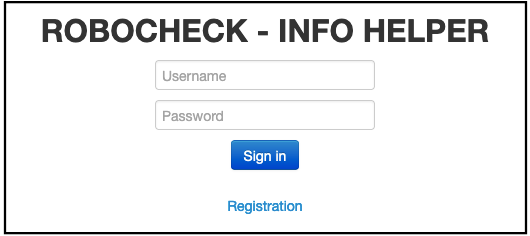7 Benefits of CRM For Ecommerce Businesses
With the rapid growth of digital marketing, CRM software is experiencing an explosion in popularity. In just a few short years, the CRM market is expected to generate $35 million in revenue in the United States alone. And this growth is only expected to continue, with a projected 13% increase in market value each year from 2022 to 2030.
There are many benefits of using a customer relationship management (CRM) system for ecommerce businesses.
CRM for ecommerce businesses is a great way to manage customer relationships and keep track of sales and orders. By using a CRM system, businesses can automate many customer-related tasks. Some of these include customer service, order management, and marketing.
CRM systems can also help businesses track customer behavior and preferences. This can then be used to customize the shopping experience and improve customer satisfaction.
In this article, we will discuss seven benefits of using a CRM system for ecommerce businesses.
What is CRM?
Customer Relationship Management (CRM) in eCommerce is the process of managing interactions with current and potential customers. It’s all about tracking customer data, like preferences, purchase history, and contact information.
By using this information, businesses can create tailored shopping experiences for their customers, which can help to increase sales and build customer loyalty.
7 Benefits of CRM for Ecommerce Businesses
- Improved Customer Interactions
The prime benefit of using a CRM system for ecommerce businesses is improved customer interactions. With a CRM system, businesses can automate customer interactions and make it easy for customers to contact the right person within the company.
CRM software can track customer interactions and identify support issues more quickly. Additionally, it can help businesses automate customer support tasks, such as sending follow-up emails or respond to common customer inquiries. These are components of a contact center solution that is cloud-based and highly customer-centric.
Call center software is a key component of CRM, providing a platform for businesses to manage customer phone calls, emails, and live chat sessions.
By integrating call center software with CRM, businesses can more effectively track and manage customer interactions, identify and resolve customer issues, and improve the overall customer experience.
In short, CRM systems help businesses improve customer interactions by providing data and tools for better customer service, communication, and sales.
- Improved Customer Data Management
One of the main benefits of using a CRM system for ecommerce businesses is improved customer data management. By storing customer data in a central database, businesses can more easily track customer interactions and behaviors.
This makes it easier to identify patterns and target customers with personalized marketing and sales messages. Additionally, CRM systems can automate many of the tasks associated with customer data management, such as data entry and customer segmentation.
This can free up time for businesses to focus on more strategic tasks. Ultimately, CRM systems can help businesses to improve their customer data management and boost their bottom line.
Image source: Pixabay.com
- Automated Marketing and Sales Processes
Another benefit of using a CRM system for ecommerce businesses is the automated marketing and sales processes. With a CRM system, businesses can automate tasks such as email marketing, lead generation, and sales follow-up.
Sales and marketing teams can use CRM to automate and streamline their processes. This can help them to focus on their most important tasks and to free up time for other activities.
It can also save businesses a lot of time and money, and it can help businesses improve their marketing and sales results.
- Increased Customer Loyalty
CRM (customer relationship management) can lead to increased customer loyalty in a number of ways. First, by providing a better overall experience to customers, they are more likely to be satisfied and come back again.
Second, by tracking customer purchase history and preferences, businesses can tailor their offerings and rewards to individual customers, making them feel more valued.
Finally, by proactively addressing customer concerns and issues, businesses can show that they care about their customers and are more likely to keep them happy in the long run.
Image source: Pixabay.com
By using CRM to improve customer service, businesses can create loyal, satisfied customers who will continue to do business with them for years to come.
In addition, businesses can use CRM systems to create loyalty programs and reward customers for their loyalty.
- Improved Customer Service
By tracking customer data and using it to improve customer service, businesses can create long-term relationships with their customers. CRM can lead to improved customer service in several ways.
First, it can help businesses keep track of customer preferences and tailor their services to meet customer needs. Second, it can help businesses track customer satisfaction levels and take action to improve customer satisfaction.
CRM can also help businesses identify and resolve customer service issues more quickly and efficiently. With a CRM system, businesses can identify areas where the customer experience can be improved.
In addition, businesses can use CRM systems to create self-service portals and knowledge bases, which can help customers resolve issues on their own.
- Increased Sales
By tracking customer interactions, businesses can identify patterns and trends that can lead to increased sales. For example, if a business sees that a customer often purchases a product after viewing a certain type of ad, the business can target that customer with similar ads in the future.
Additionally, businesses can use CRM data to identify upselling opportunities. For example, if a customer frequently purchases a certain type of product, the business can offer that customer related products that the customer may be interested in.
By tracking customer interactions and using that data to improve sales strategies, businesses can increase sales and grow their customer base.
With a CRM system, businesses can automate marketing and sales processes, which can lead to more sales. In addition, businesses can use CRM systems to create targeted marketing campaigns and loyalty programs, which can also increase sales.
- Segment Customers
It’s important for businesses to cater to their customers according to their position in the sales funnel, demographics, and purchase history. Nurturing customer relationships differently for those at different positions in the sales funnel is vital.
A CRM software tool can help eCommerce stores segment customers through different aspects, such as their location, demographic, interests, purchase history, etc. This can help businesses deliver a personalized experience.
Conclusion
There are many benefits of using a CRM system for ecommerce businesses. CRM systems can help businesses keep track of customer data, manage customer interactions, and automate marketing and sales processes. In addition, CRM systems can help businesses increase customer loyalty, improve customer service, and increase sales. The main aim of any business is customer satisfaction and loyalty. CRM can help you acheive this and much more.






